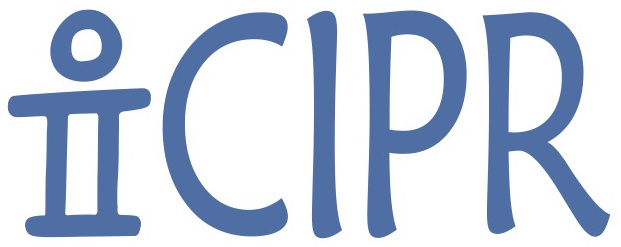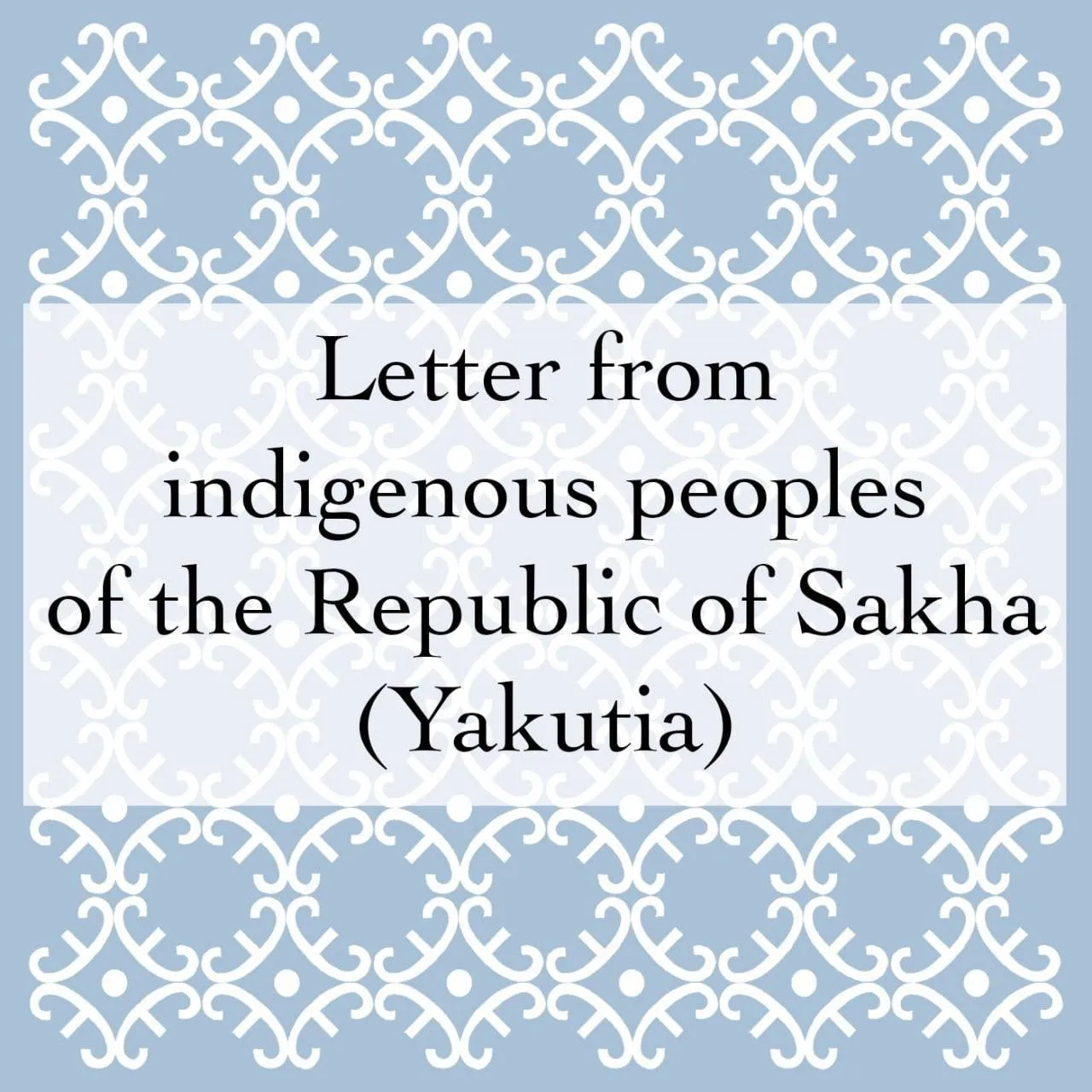Dear friends and allies,
As the war in Ukraine continues to rage, laying horrific havoc upon its people and land, we, the indigenous peoples of the North, strongly denounce the atrocities carried out by Russian forces and stand in solidarity with the people of Ukraine. The fact that Russia is committing genocide in Ukraine to eradicate Ukrainian statehood and any remnants of its identity while devouring a large portion of the nation into itself is becoming increasingly evident with each passing day. These imperial methods evolved from Russia’s centuries-long oppression of indigenous peoples – historically unrecognized and still ongoing colonization allowed this logic to spill over into neighbouring countries. In this collective letter, we want to address how the Russian Federation has affected ethnic minorities and indigenous peoples of Siberia through a violent tactical program of erasing indigenous identities.
Siberia accounts for roughly 77% of Russian territory and is divided into different types of federal districts: republics, oblasts (provinces), krais (territories), and autonomous regions. The Republic of Sakha (Yakutia) is situated within the Siberian region; it is the largest subject of the Russian Federation and has six recognized ethnic groups: Even, Evenk, Dolgan, Chukchi, Yukaghir and Sakha. Historically, Russia expanded its borders by subjugating territories that were the homelands to many indigenous people. Ethnic cleansing, forced relocation, assimilation, russification, cultural erasure, and resource exploitation all went hand in hand with conquering these regions. This dark side of Russian history has never been widely discussed or acknowledged, particularly within the country, where the forced hierarchy of cultures and ethnicities has long been normalized, portrayed as natural and reproduced through cultural products.
The idea of “people’s friendship,” proclaimed by the Soviet Union, still influences many people’s opinions. It helped to spread the illusion of homogeneity. Images depict the titular nation, “Russians,” as the center of the narrative, surrounded by minorities. Such means of symbolism were an ongoing conceptual warfare that the empire has been utilizing for decades. This sentiment has now evolved into the state narrative that highlights the necessity of cooperating against evil as well as in promo videos where representatives of ethnic minorities proclaim their ethnicities as Russians. The propaganda is overloaded with false stories about indigenous peoples being “wild and uncivilized,” disproportionately exaggerating their responsibility for criminal atrocities. This way, they become the “face” of the war. It becomes apparent that these crafted narratives are driven by the desire to benefit the needs of the state.
On 20.09.22, the State Duma of Russia adopted a law on amendments to the Criminal Code introducing the concepts of “mobilization”, “martial law”, and “wartime”. The following day, state officials announced the “referendums” for occupied Ukrainian territories as well as the “partial” mobilization of 300,000 citizens with the experience necessary to perform specific military tasks. That night, conscription notices were delivered to the doors of residents of Siberia and the Far East, ordering them to leave their homes the next morning – with no time to prepare or say goodbye to their families. Because of the geographical specificities, the region is facing severe infrastructural shortages – internet and cellphone service are not accessible to the majority of the Yakutian regions. Cable television, which is the main source of information, functions as propaganda. No alternative sources of media could provide any alternative perspectives on the war. Hence, most of the people drafted from remote areas were either misinformed about the war or had no idea that the draft was happening. Here, 4,883 km away from Moscow, 4,750 men were expected to be recruited (1) . Yakutians are concerned about the scale of the draft, which does not follow principles of proportionality and the consistency regarding the list of those who were not to be mobilized according to the law. Among then are people over 55 years old, full-time students, people with disabilities, and others off-list who are taken away by this totalitarian system. According to the Constitution, it is illegal to draft small-numbered indigenous peoples of the North. Nonetheless, helicopters land in remote, small Arctic communities, gathering people who are uninformed of their rights and can barely speak Russian to wage war against Ukraine. The persistence with which this draft is targeting regions where transportation fees are so unfeasible is alarming. If previously getting a helicopter for a medical emergency was an ordeal that could take months of waiting, the state transports people immediately as if there were no obstacles before. All of these violations synchronize with seasonal change – a vital part of life in northern communities. As the first snow meets the ground, the following questions arise: how will children, the elderly, and women get through the winter in the extreme climate conditions with the absence of essential community members?
On 25.09.22, Yakutian women organized a peaceful demonstration – hundreds of daughters, sisters and mothers gathered to protest, shouting “No to war!”, “No to mobilization!”, “No to genocide!”. State propaganda attempted to steal this civic action by portraying the demonstration as a rally in favor of mobilization. All video evidences, however, demonstrate that it is a misinterpretation and distortion of what actually happened. The widespread international response to this action – mostly among people with no experience of living in a totalitarian country for decades – has been that Yakutians have just woken up and are only against mobilization, not against the war. It is important to highlight that the prevailing majority of those who have access to information in the Sakha Republic have never supported the war: simply because it is not our war. Since the war began, there has been less visible civil resistance, and several anonymous anti-war groups emerged in the state without basic human rights that do not make it easy to speak freely.
On 1.10.22, there was another protest that did not succeed due to being suppressed by officials: places of mass gatherings were occupied by “security” forces, which were additionally sent from Moscow to help the situation since their local colleagues were not active enough in the eyes of the dominant power. Students, threatened with expulsions, were forced to run in rows in these places for no particular reason. 23 women were arrested randomly from streets and bus stops, many being pursued by the forces mentioned above.
A commitment to safeguarding and protecting indigenous peoples’ inalienable rights was made in the original Yakutian Constitution (1992). It was written with respect for their traditions, cultures, and customs. It also included “protection from any form of forced assimilation and ethnocide, as well as elimination of ethnic identity, historical and sacred sites, and monuments of spiritual and material culture.” Despite this, through Putin’s administration and the constitutional amendments he made while in power, our republic steadily lost its remaining degree of independence and the Constitution no longer bears its function. Similarly, Russia did not adopt the UN General Assembly Declaration on the Rights of Indigenous Peoples in 2007, which ensures indigenous peoples’ rights to the lands, territories, and natural resources that they have historically owned. The fact that the Russian side rejected the proclamation explicitly shows that the national republics populated by indigenous people are nothing more than raw material supplements exploited by Moscow. The Russian government engages in extensive resource extraction of indigenous peoples’ territories without any oversight from human rights or environmental groups. Exploiting nature frequently results in environmental catastrophes: water pollution of rivers, lakes, fires, and soil erosion. The indigenous population of the republic therefore experiences oncological and genetic congenital illnesses. Our rights are violated by the state we happen to be part of due to imperial gluttony. The illusion that a political regime is trying to immerse society in has no solid ground beneath it. Russia, the Soviet Union, and the Russian Empire have been continuously hostile towards the population of indigenous peoples residing within their territories. The state managed to take our names, eliminate our languages, exhaust our lands, and pollute our waters. In our ancestral lands, we are positioned as hostages of the state, forced to witness the disappearance of the “familial” in relation to their homes.
The state’s long-running campaign involves the current ethnic cleansing as a well-planned move to eradicate indigenous peoples, many of whom no longer exist or have up until now survived in populations of fewer than ten. This is the time for us to speak up and start these complicated conversations, both locally and globally. We need to acknowledge the ethnocide of indigenous peoples of Russia as well as the never-ending exploitation of fragile ecosystems that leads to the intensification of global warming processes and has long-lasting effects on a planetary scale. With this letter, we seek solidarity with the indigenous communities and their allies worldwide. We would like to ask you to help spread our story and share what is happening to indigenous peoples in Russia – with your families, co-thinkers, communities, local media, and policymakers. We hope for understanding and appreciate any support in raising awareness regarding these circumstances.
1. According to estimates carried out manually by volunteers of the Free Yakutia Foundation due to the complete absence of official reliable statistics from the Russian authorities.

